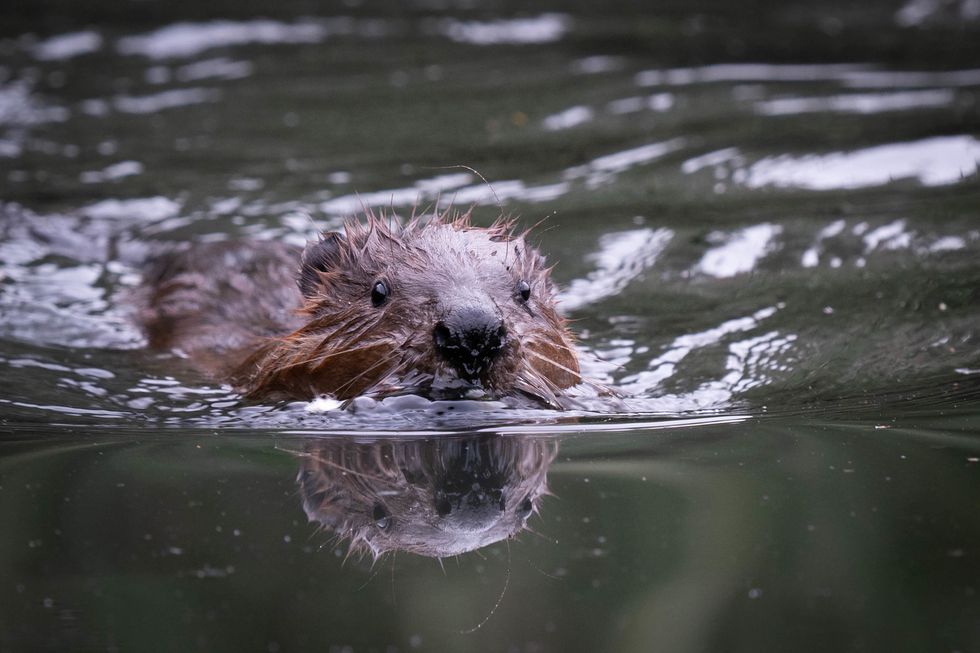
Beavers will return to the Cairngorms for the first time in 400 years after a licence was granted for their release.
NatureScot has approved an application from the Cairngorms National Park Authority to release up to six beaver families at agreed sites in the upper River Spey catchment in the first year of the initiative.
It also allows for future additional releases at other sites of up to a total of 15 beaver families over the course of the five-year licence.
NatureScot, Scotland’s nature agency, said establishing a beaver population on the River Spey will boost biodiversity and enhance ecosystems.
The approval marks the fifth catchment in which beavers have either been officially granted permission to remain or have been released.
It comes after the Scottish Government in late 2021 announced its support for translocation, which involves safely trapping and moving the animals to a more suitable area, rather than culling them when they cause problems.
Donald Fraser, NatureScot head of wildlife management, said: “This decision marks a significant milestone for beaver restoration in Scotland, bringing this keystone species back to one of our biggest river catchments, with huge potential for beavers to contribute to habitat restoration and biodiversity enhancement in the Cairngorms National Park.
“We also appreciate and understand both the support and legitimate concerns articulated by farmers and crofters through the consultation process.
“We are satisfied that the monitoring and mitigation plans set out by the Cairngorms National Park Authority, alongside our existing Beaver Mitigation Scheme, will sufficiently address any potential conflicts that may arise.”
The species was driven to extinction 400 years ago.
An initial reintroduction trial of beavers at Knapdale in Argyll began in 2009 and populations are now established there and in Tayside, on the Forth, and at Loch Lomond.
The beavers will be trapped and taken under licence from areas where they are having a negative impact on prime agricultural land and where mitigation measures have not been successful or are not possible.
They will come from the Tay catchment after being humanely trapped before undergoing veterinary health screening.
The Cairngorms National Park Authority said the first three release sites are on land owned by the Rothiemurchus Estate, Wildland Scotland and RSPB Scotland.
They will receive beavers in the coming weeks and months.
This is a significant moment in the history of the national park
Sandy Bremner, Cairngorms National Park Authority
Sandy Bremner, convener of the Cairngorms National Park Authority, said: “We are pleased that NatureScot has granted the licence, allowing for the translocation of beavers to the upper Spey catchment.
“This is a significant moment in the history of the national park, with the licence allowing us to return beavers to the area after an absence of 400 years.”
NatureScot has assessed the catchment as highly favourable for beavers, with a low risk of beaver/human conflict.
Scottish biodiversity minister Lorna Slater said: “The decision to grant a licence for the release of beavers in the Cairngorms National Park is a huge step forward in our collective efforts to re-establish this once lost species across Scotland.”
Alan McDonnell, Trees for Life’s head of nature restoration, said: “The official return of beavers to the Cairngorms after four long centuries is wonderful news for Scotland’s biodiversity.
“Allowing these habitat-creating, flood-preventing animals to be relocated across Scotland – to where they are needed, and with the right support in place for farmers – offers hope for tackling the nature and climate emergencies.
“By moving rather than shooting beavers, we can help this keystone species get to work boosting biodiversity, tackling climate breakdown, and creating wildlife tourism opportunities.”













